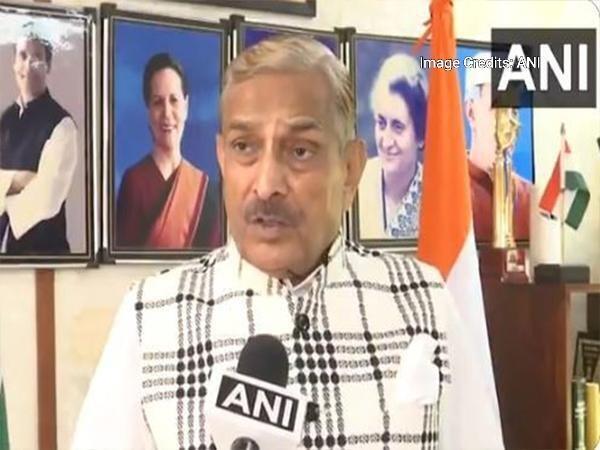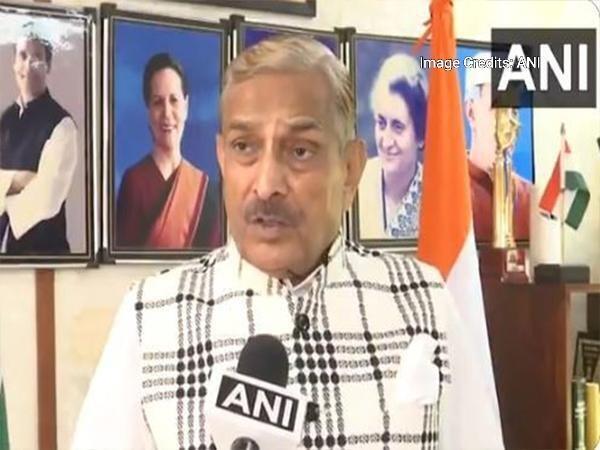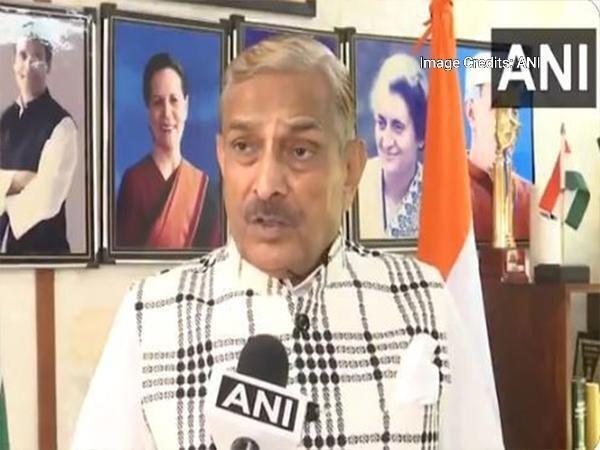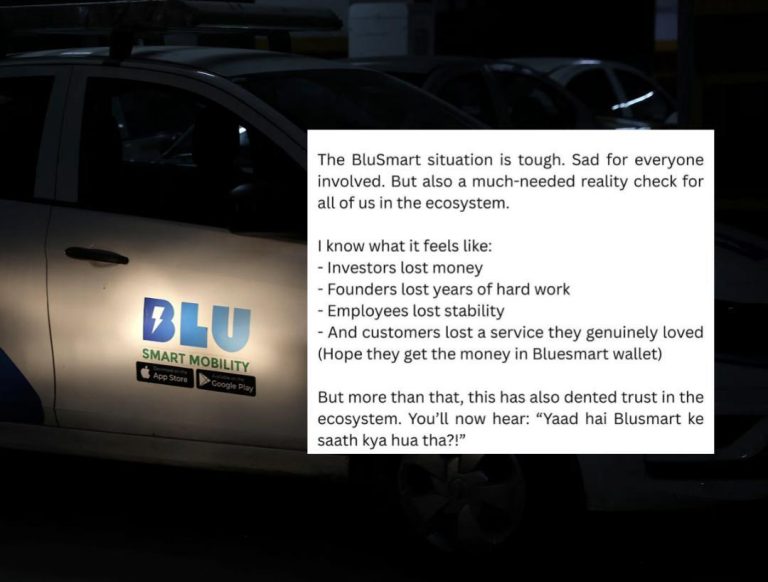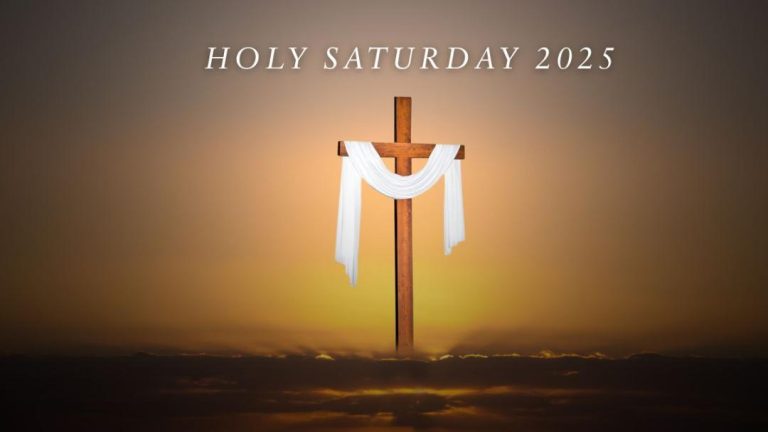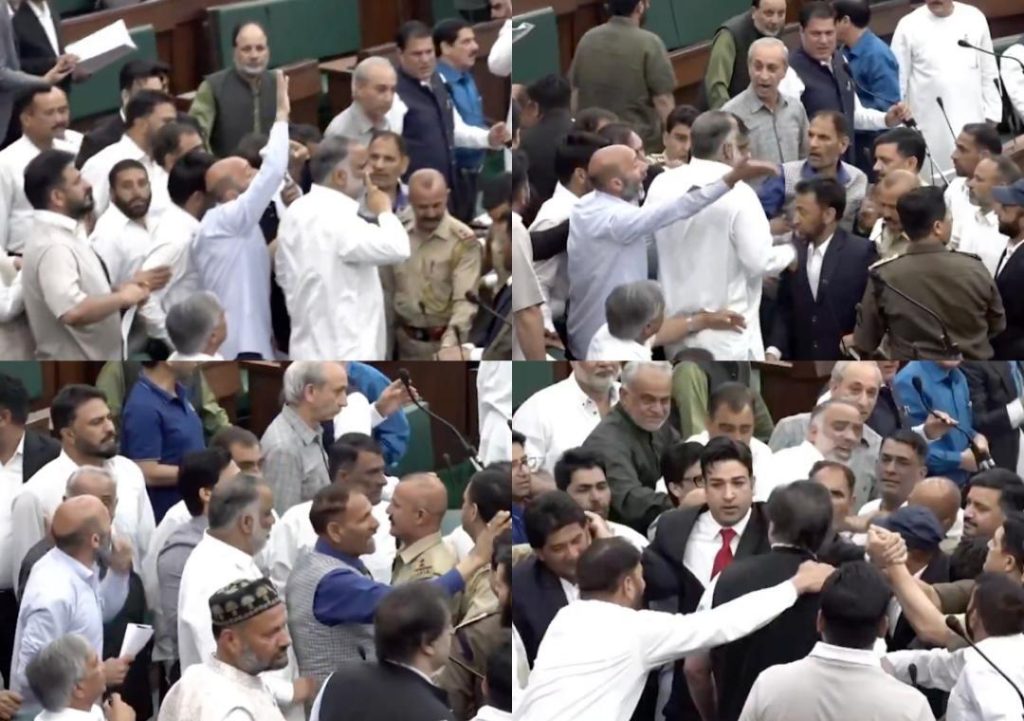
Ruckus inside J&K Assembly continues for second day over Waqf Act
The Jammu and Kashmir Assembly witnessed a chaotic scene for the second consecutive day as opposition parties continued to demand a discussion on the Waqf Act, leading to the adjournment of the House for 30 minutes.
The ruckus began soon after the proceedings started on Tuesday, with National Conference (NC) MLAs moving a motion to adjourn the Question Hour to discuss the Waqf Act. However, Speaker Abdul Rahim Rather denied the motion, leading to strong protests from the NC and other opposition parties.
The NC MLAs, led by their leader Omar Abdullah, stormed out of the House, shouting slogans and demanding that the Speaker allow a discussion on the Waqf Act. The other opposition parties, including the Peoples Democratic Party (PDP), the Congress, and the Bharatiya Janata Party (BJP), also joined the protest.
The Speaker, however, remained firm and refused to buckle under pressure. He said that the adjournment motion was not in order and that the House would not be allowed to be disrupted. He then adjourned the House for 30 minutes, citing lack of quorum.
The opposition parties have been demanding a discussion on the Waqf Act, which they claim is discriminatory and aimed at targeting the Muslim community. The Act, which was passed by the previous government in 2013, allows the Jammu and Kashmir government to acquire land for the construction of Waqf properties, such as mosques and graveyards.
The opposition parties claim that the Act is being misused by the government to acquire land for non-Waqf purposes, and that it is being used to target the Muslim community. They have demanded that the government repeal the Act and ensure that the rights of the Muslim community are protected.
The BJP, on the other hand, has supported the Waqf Act and has accused the opposition parties of trying to mislead the people. The party has claimed that the Act is necessary to protect the Waqf properties and to ensure that they are not misused.
The ruckus in the Assembly is a major embarrassment for the government, which is already facing criticism for its handling of the COVID-19 pandemic. The government had hoped to use the budget session to present a united front and to pass key bills, but the ruckus has put a spanner in the works.
The situation is likely to remain tense in the coming days, with the opposition parties promising to continue their protests until their demands are met. The government, on the other hand, is likely to continue to resist the opposition’s demands and to try to push through its agenda.
The Waqf Act is not the only issue that has sparked controversy in the Assembly. The government has also been accused of misusing its powers to acquire land, and of ignoring the rights of the people. The opposition parties have demanded that the government take immediate steps to address these issues and to ensure that the rights of the people are protected.
The situation in the Assembly is a reflection of the larger political crisis that is gripping the state. The government is facing criticism for its handling of the COVID-19 pandemic, and for its lack of transparency and accountability. The opposition parties, on the other hand, are demanding greater accountability and transparency from the government.
In the coming days, the Assembly is likely to continue to be a battleground, with the opposition parties demanding greater accountability and transparency from the government, and the government resisting their demands. The situation is likely to remain tense, and it remains to be seen how it will ultimately be resolved.
